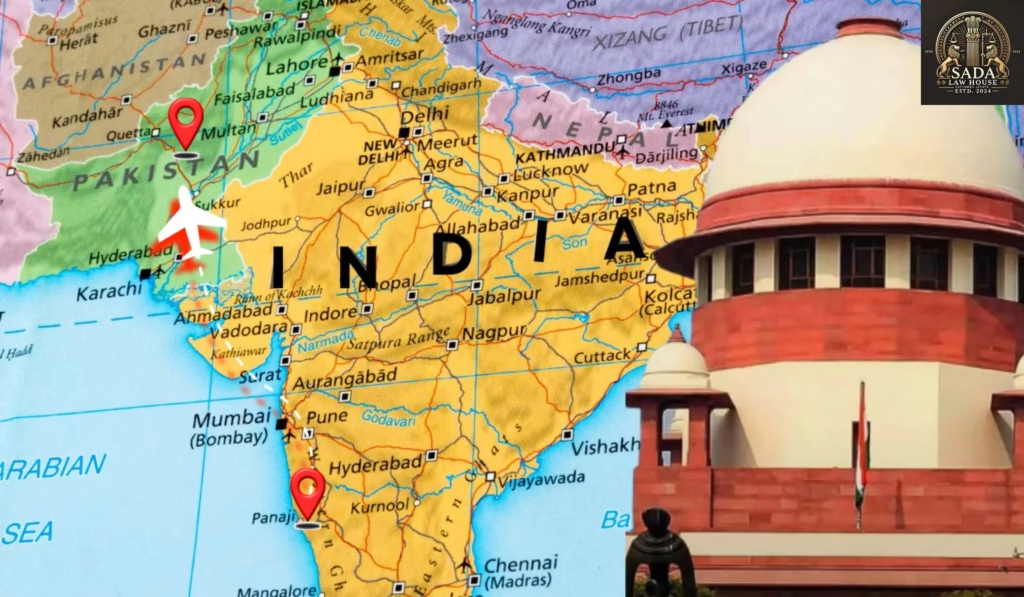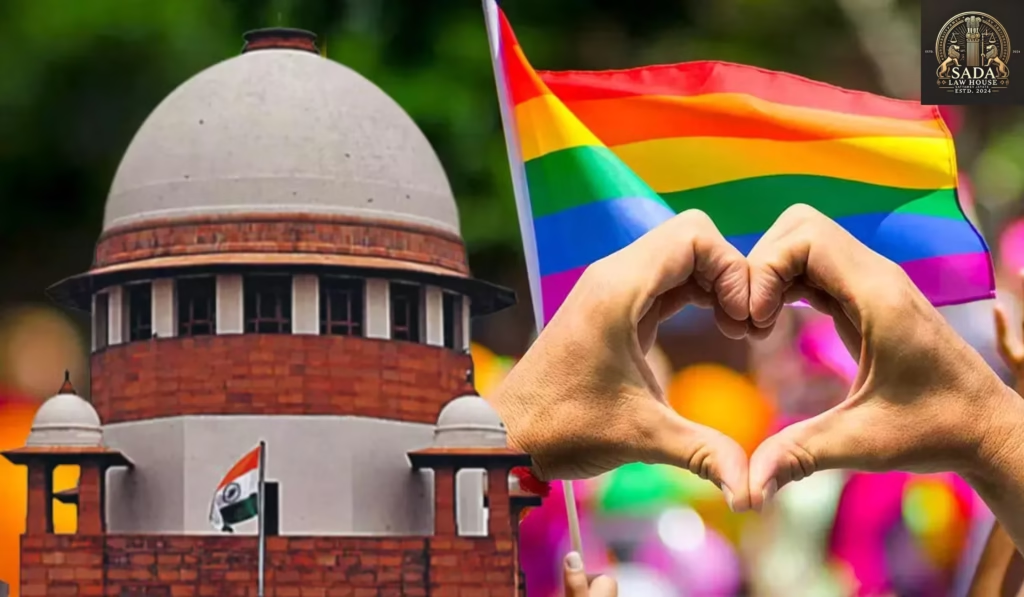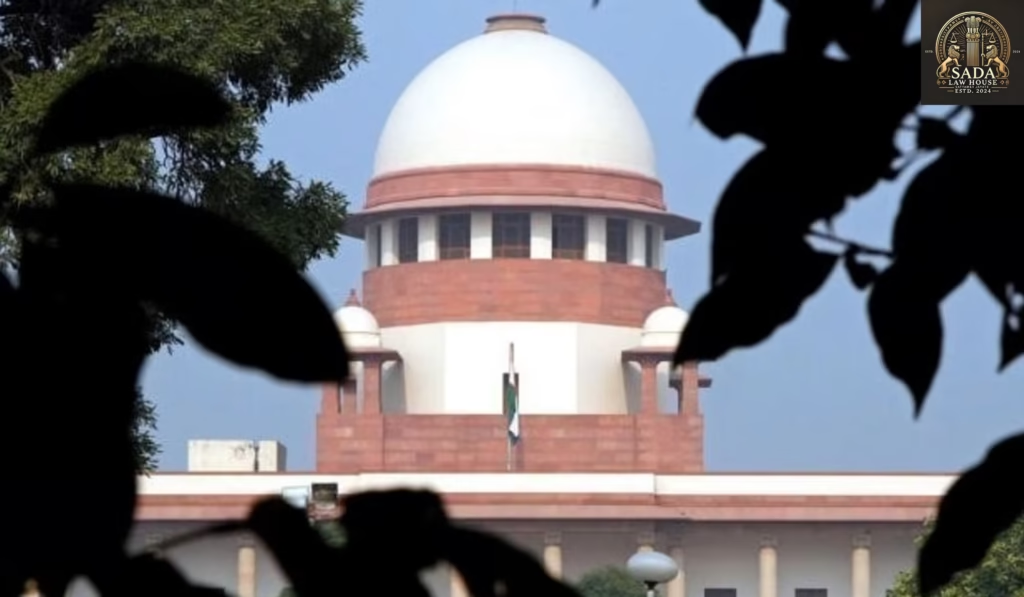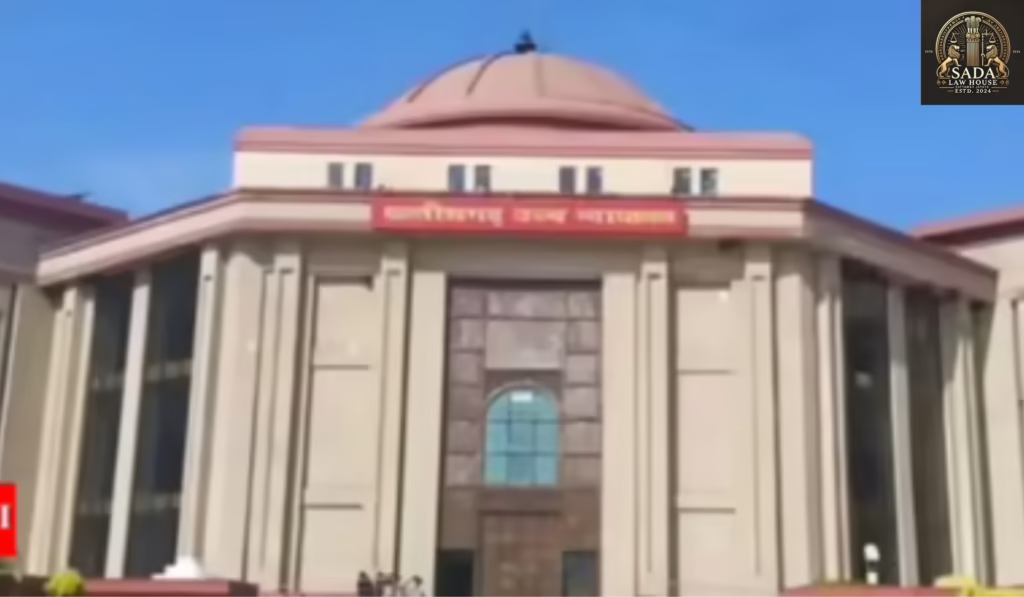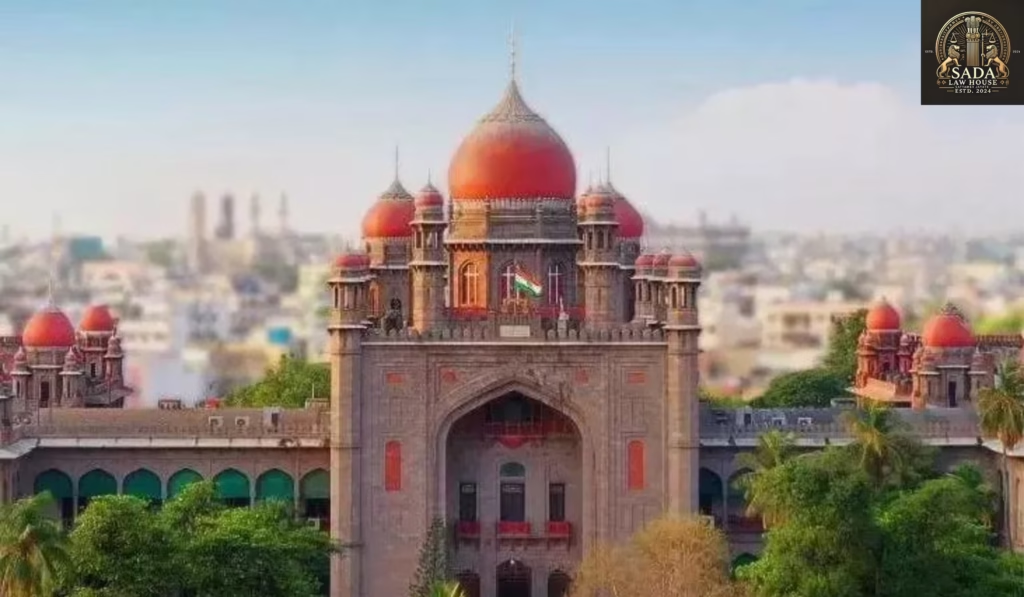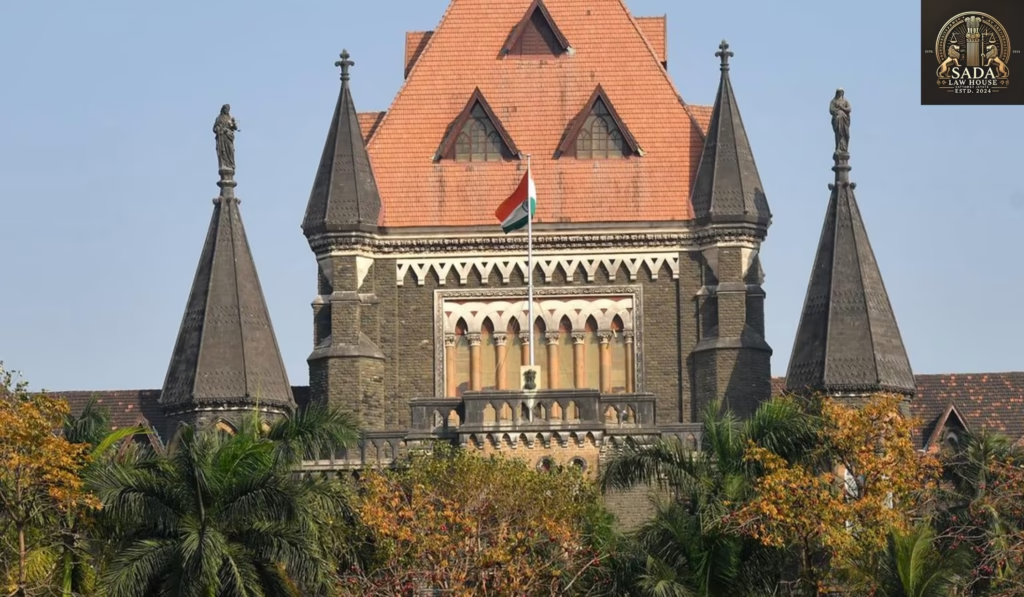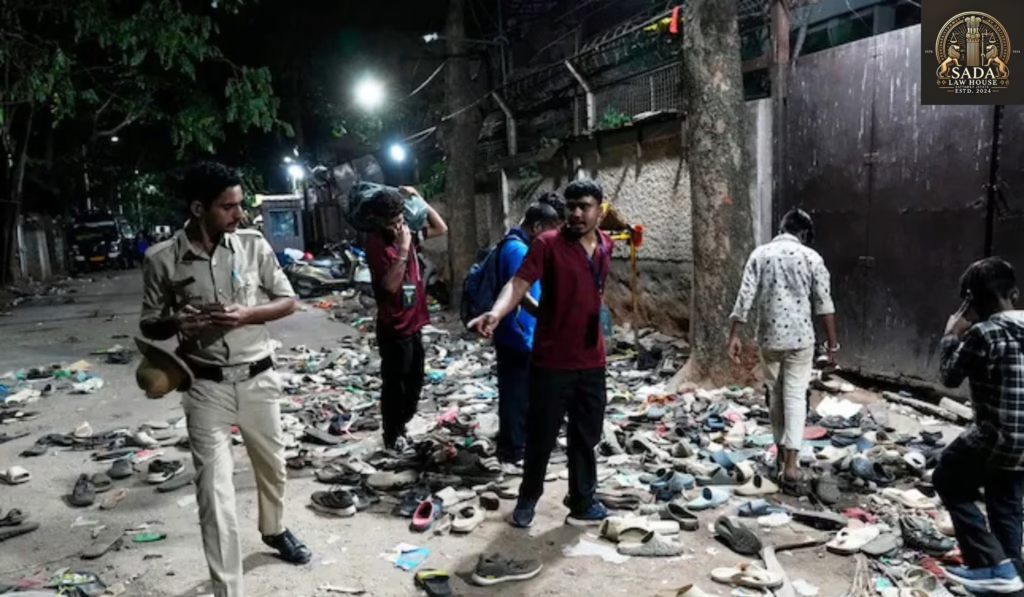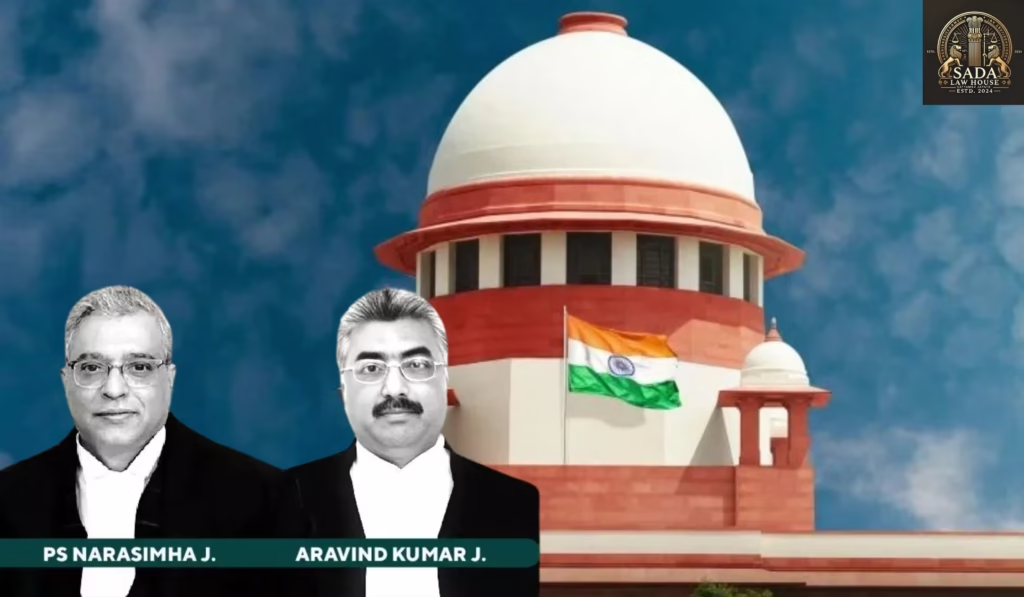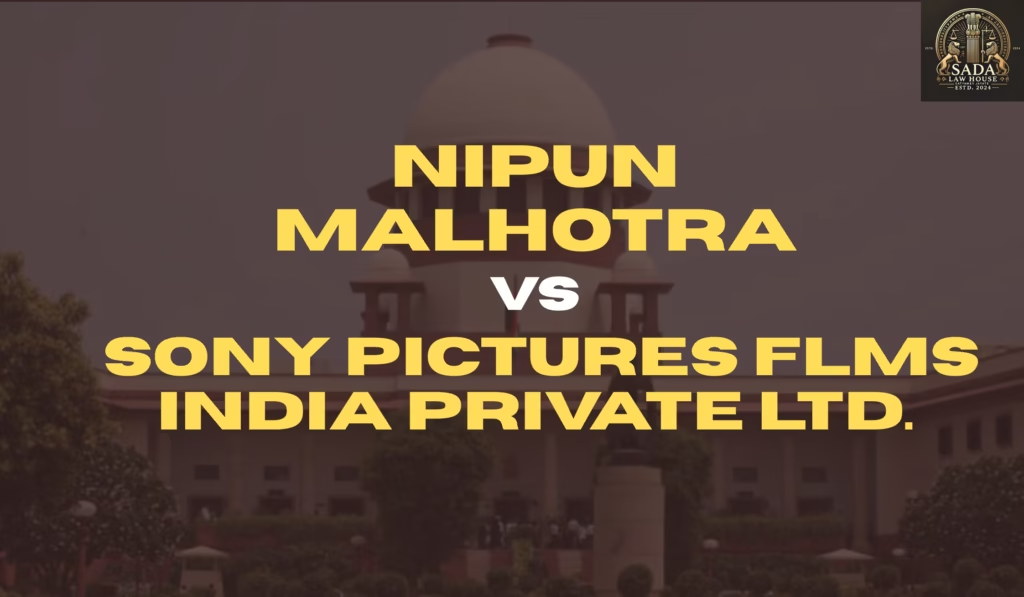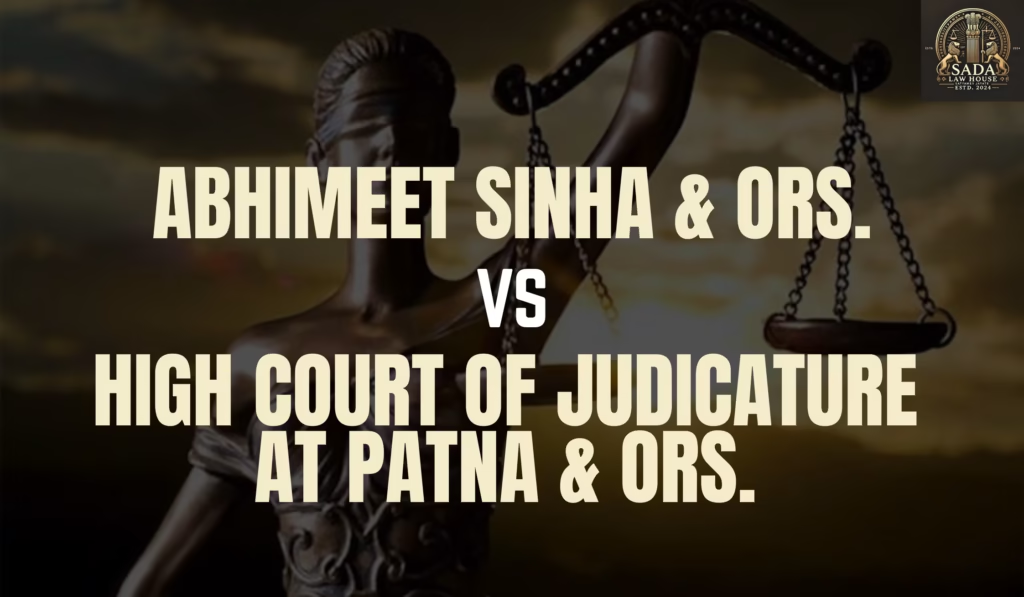Pakistani National Living in Goa Since 2016 Appeals to Supreme Court After Visa Revocation
Trending Today Pakistani National Living in Goa Since 2016 Appeals to Supreme Court After Visa Revocation Madras High Court Recognizes Same-Sex Couples as Family, Upholds LGBTQIA+ Rights and Personal Liberty Supreme Court Ends 50-Year Shahdara Gurdwara Dispute, Affirms Sikh Ownership Chhattisgarh Teachers File Petition Against School Rationalization Orders Telangana High Court Reviews Cow Protection Law Enforcement Ahead of Bakrid Festival Bombay High Court Allows Animal Sacrifice at Vishalgad Fort During Urs Festival Amid Protests Bengaluru RCB Victory Parade Stampede: 11 Dead, Legal Action and Public Outcry Follow IPL Celebration Tragedy LEGAL JOB OPPORTUNITY AT PEOPLESCIENT LEGAL JOB OPPORTUNITY AT SARIN PARTNERS JOB OPPORTUNITY AT VIDHI CENTRE FOR LEGAL POLICY Pakistani National Living in Goa Since 2016 Appeals to Supreme Court After Visa Revocation Prabhat Kumar Biltoria 07 June 2025 A Pakistani national residing in Goa since 2016 on a long-term visa has moved the Supreme Court of India after India revoked visas for Pakistani citizens post-Pahalgam attack. Learn more about the case, legal response, and visa policy changes. Background – Pakistani Citizen Residing in Goa on Long-Term Visa A Pakistani national, who claims to have been living in Goa since 2016 on a valid long-term visa, has approached the Supreme Court of India to challenge the recent Government of India decision to revoke visas for Pakistani nationals. The individual asserts he was born in India and has maintained legal residency in Goa for nearly a decade. His appeal follows a government notification issued after the Pahalgam terror attack, which led to the cancellation of most visas granted to Pakistani citizens. Supreme Court Hearing and Legal Arguments The petition came before a bench comprising Justice Sanjay Karol and Justice Satish Chandra Sharma. During the hearing, the petitioner’s legal counsel referenced the Union government’s notification stating that all visas granted to Pakistani nationals were revoked as of April 27, except for categories like medical, diplomatic, official, and long-term visas. When Justice Karol remarked, “Then go back,” the lawyer responded that the petitioner is not unwilling to leave but requested the court to consider specific conditions outlined in the long-term visa regulations. Bench Queries and Petitioner’s Legal Route The court questioned why the petitioner did not approach the Bombay High Court, which has jurisdiction over Goa, before coming to the Supreme Court. The counsel explained that local police visits created concerns for the petitioner, prompting a direct approach to the apex court. The bench eventually agreed to list the matter for a detailed hearing, taking note of the petitioner’s claim of Indian birth and long-standing residence. Government Order – Visa Revocation for Pakistani Nationals In its official statement, the Government of India clarified that all currently valid visas for Pakistani nationals—with the exception of medical (valid until April 29), long-term, diplomatic, and official visas—were revoked effective April 27. This directive was issued following heightened security concerns after the Pahalgam attack, which triggered a reassessment of India’s visa policy for Pakistani citizens. Implications of Visa Policy Changes on Pakistani Residents in India This case brings attention to the uncertainty faced by Pakistani nationals in India, particularly those residing on long-term or humanitarian grounds. The government’s directive has raised legal and humanitarian questions, especially for those who claim deep ties to India through birth or long-term residence. Conclusion – Awaiting Supreme Court’s Decision As the Supreme Court of India prepares to examine the matter further, this case could set a precedent for how India treats visa-holding Pakistani nationals in light of evolving national security policies. The outcome may affect similar long-term residents seeking legal clarity and protection under Indian law. Leave a Reply Cancel Reply Logged in as Sada Law. Edit your profile. Log out? Required fields are marked * Message* Case Laws Supreme Court Judgment on Kolkata Municipal Corporation Land Acquisition: Protecting Right to Property Under Article 300A Supreme Court Judgment on Kolkata Municipal Corporation Land Acquisition: Protecting Right to Property Under Article 300A Sada Law • June 6, 2025 • Case law • No Comments Supreme Court Guidelines on Portrayal of Persons with Disabilities in Indian Cinema | Nipun Malhotra v. Sony Pictures (2024) Supreme Court Guidelines on Portrayal of Persons with Disabilities in Indian Cinema | Nipun Malhotra v. Sony Pictures (2024) Sada Law • June 6, 2025 • Case law • No Comments Supreme Court Upholds Viva Voce Cut-Off for Judicial Services: Key Judgment on Merit Criteria in Bihar and Gujarat Recruitment Supreme Court Upholds Viva Voce Cut-Off for Judicial Services: Key Judgment on Merit Criteria in Bihar and Gujarat Recruitment Sada Law • June 6, 2025 • Case law • No Comments 1 2 3 … 5 Next »

